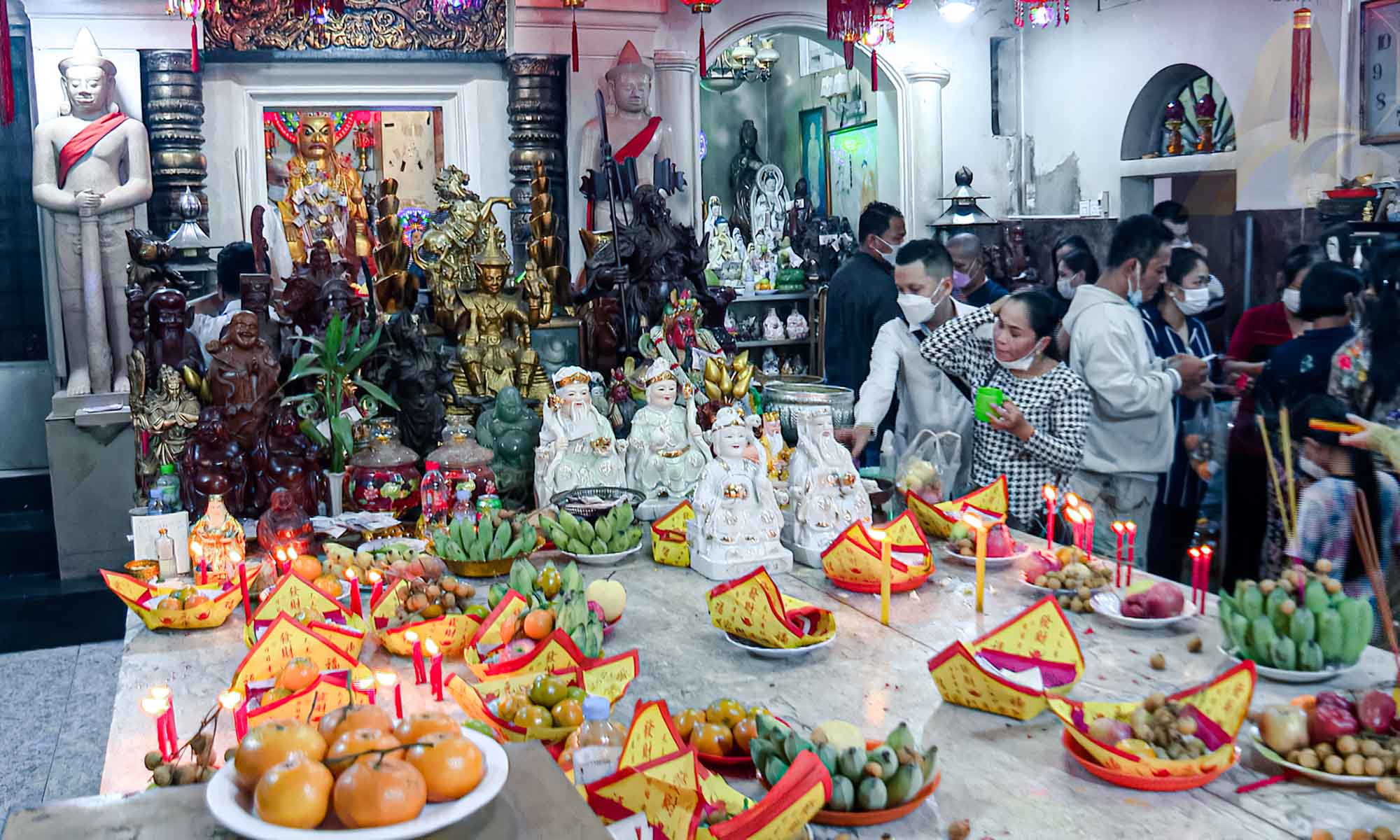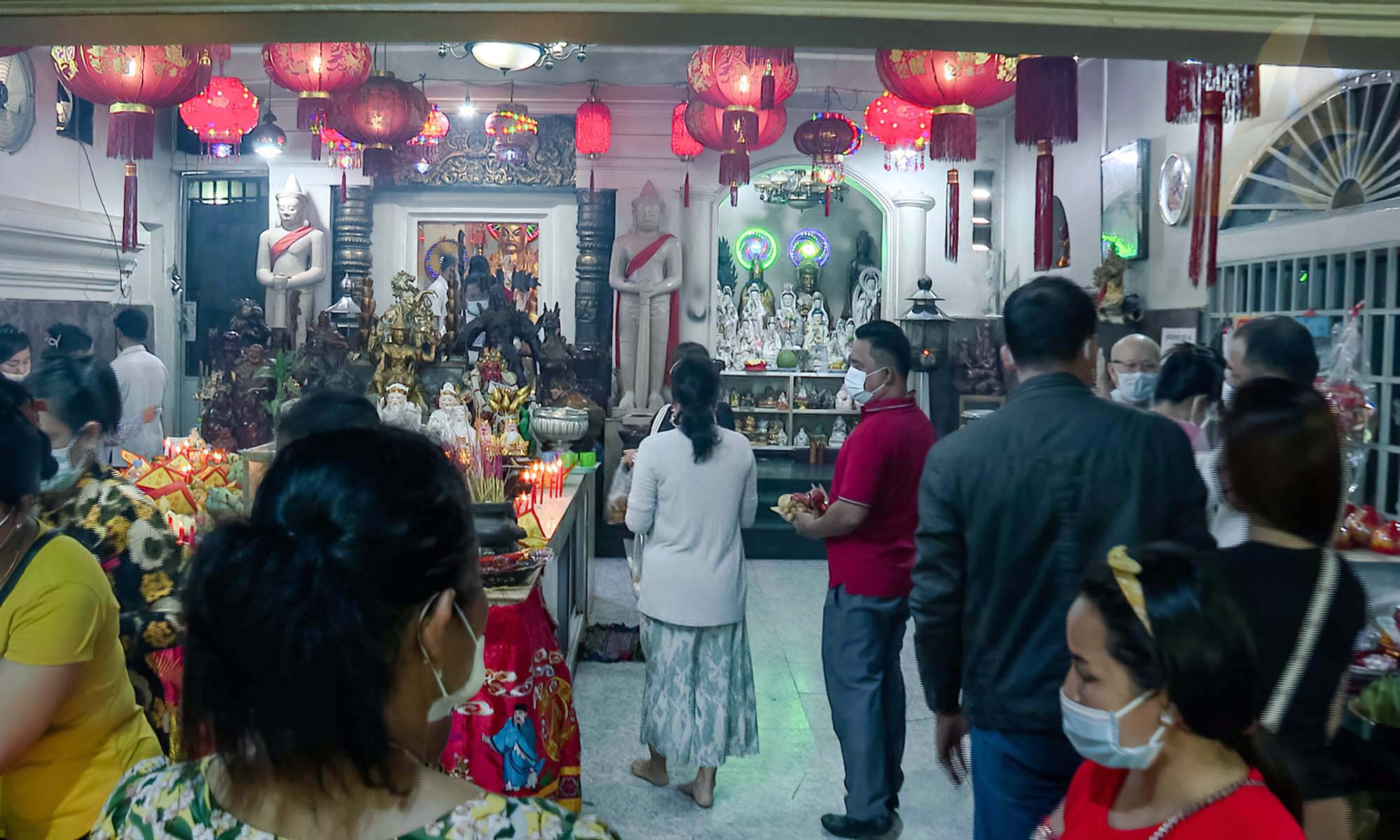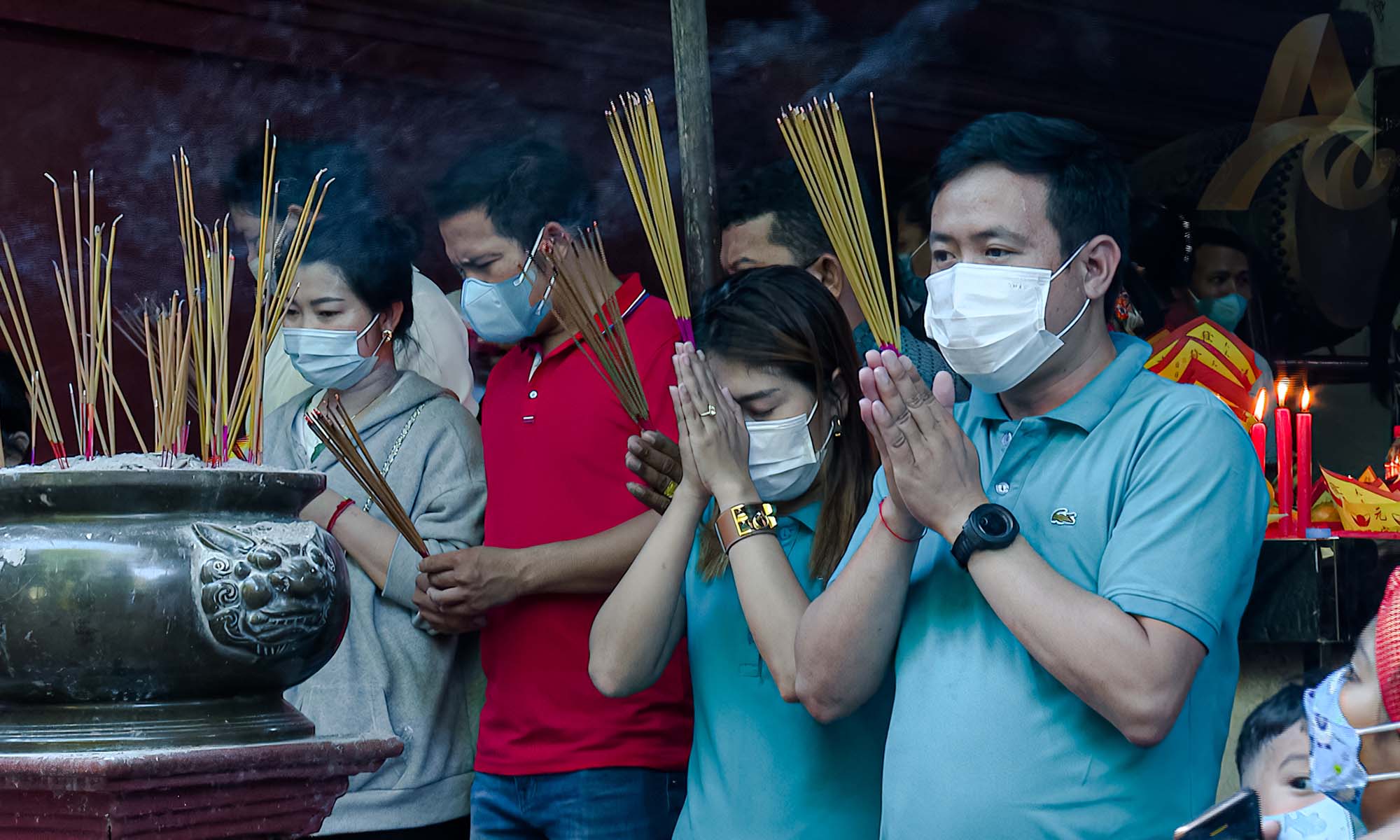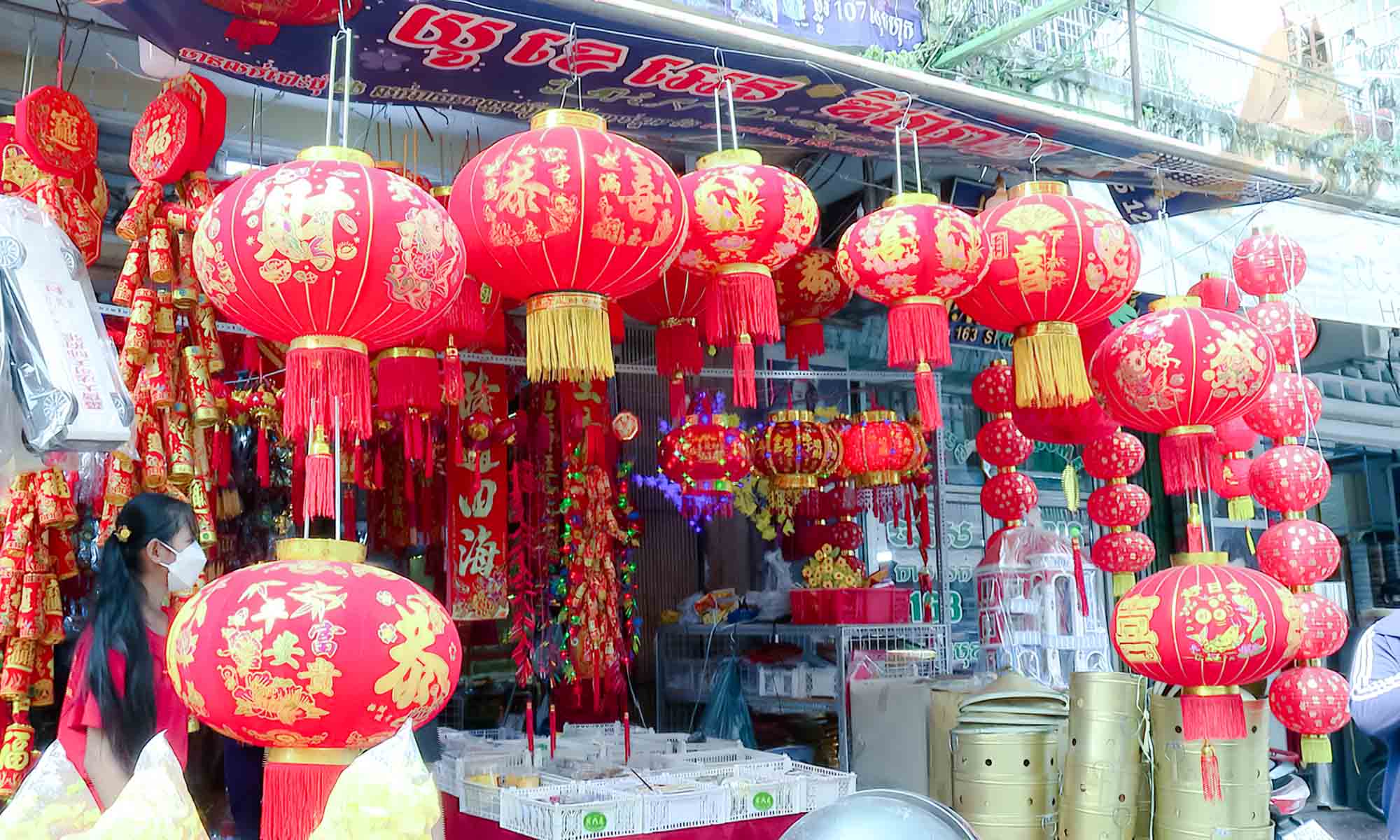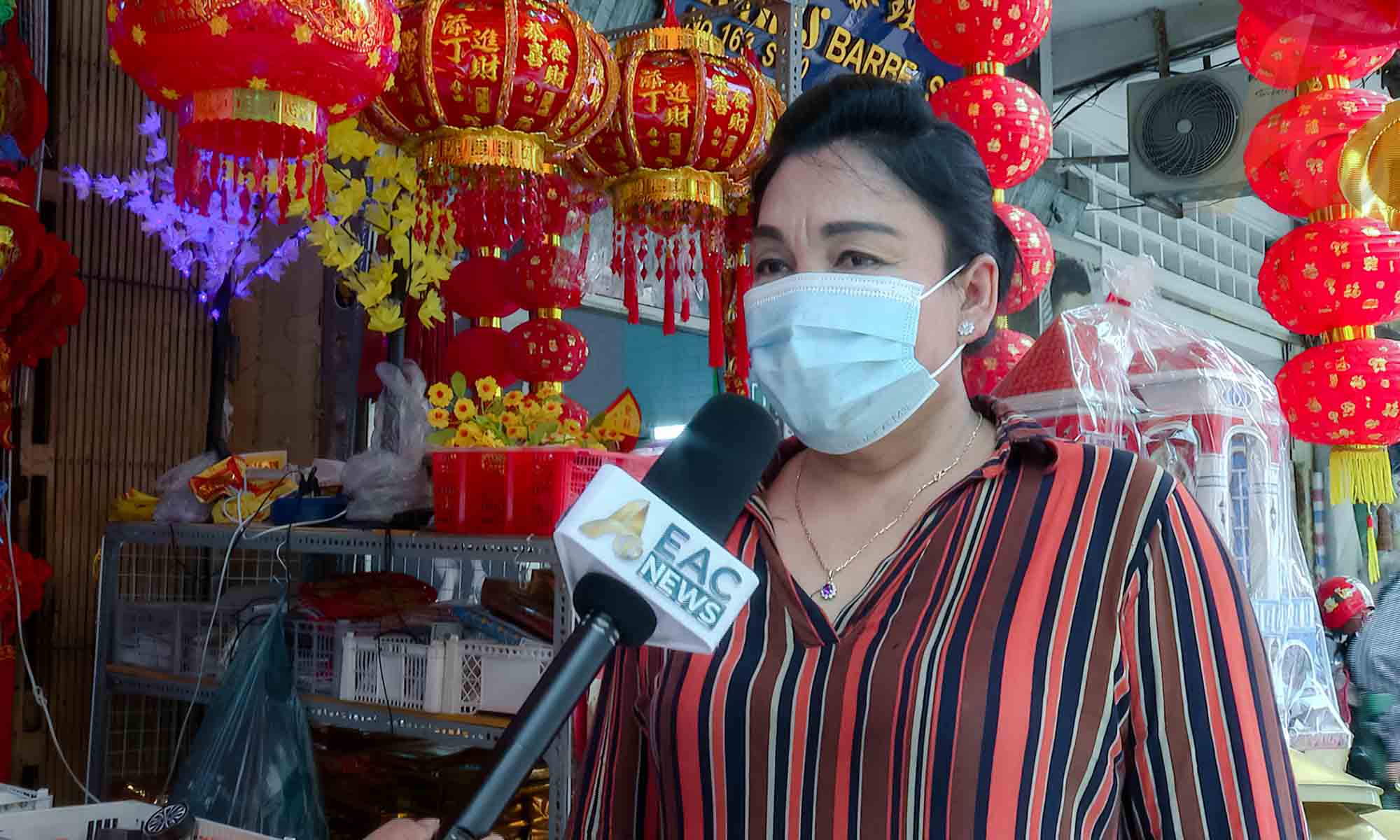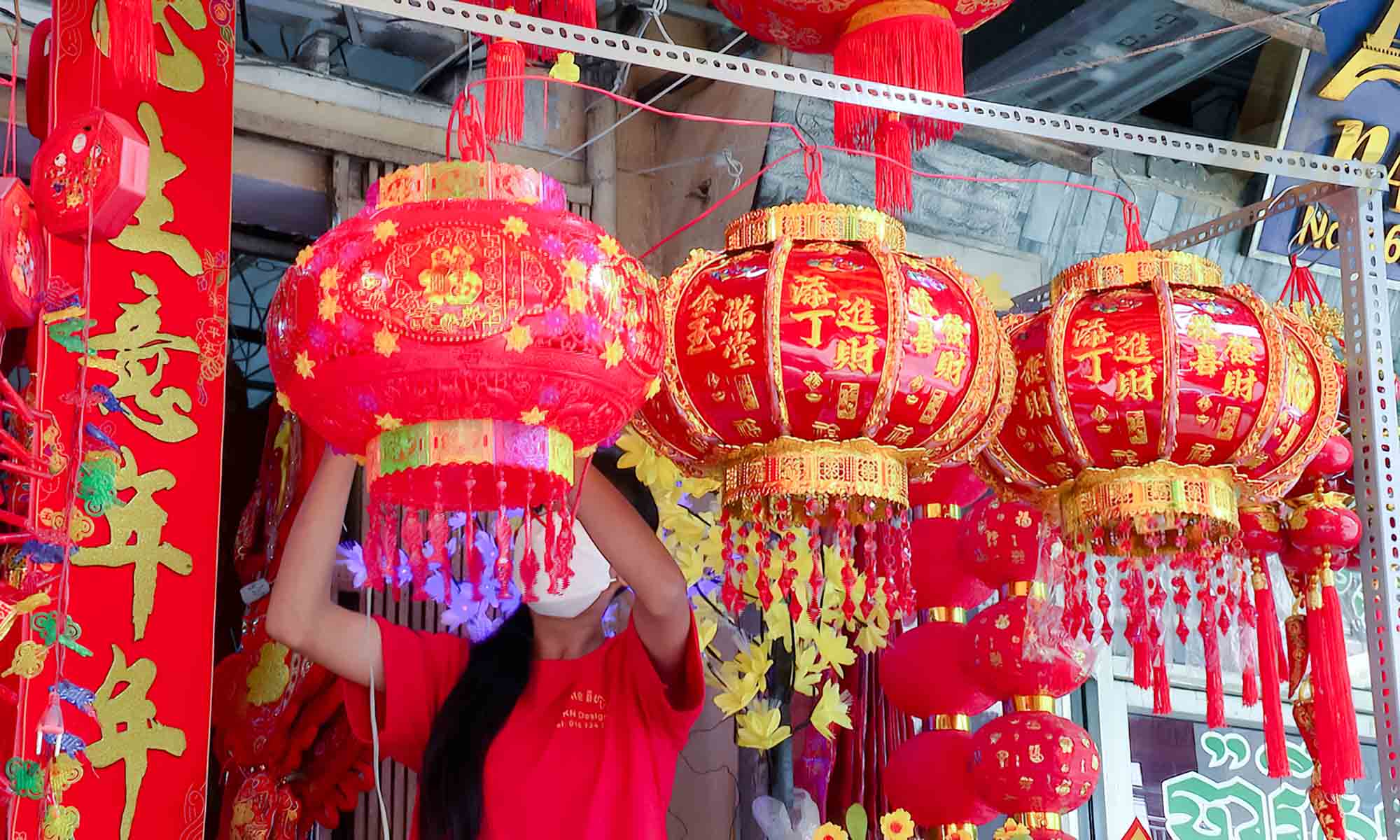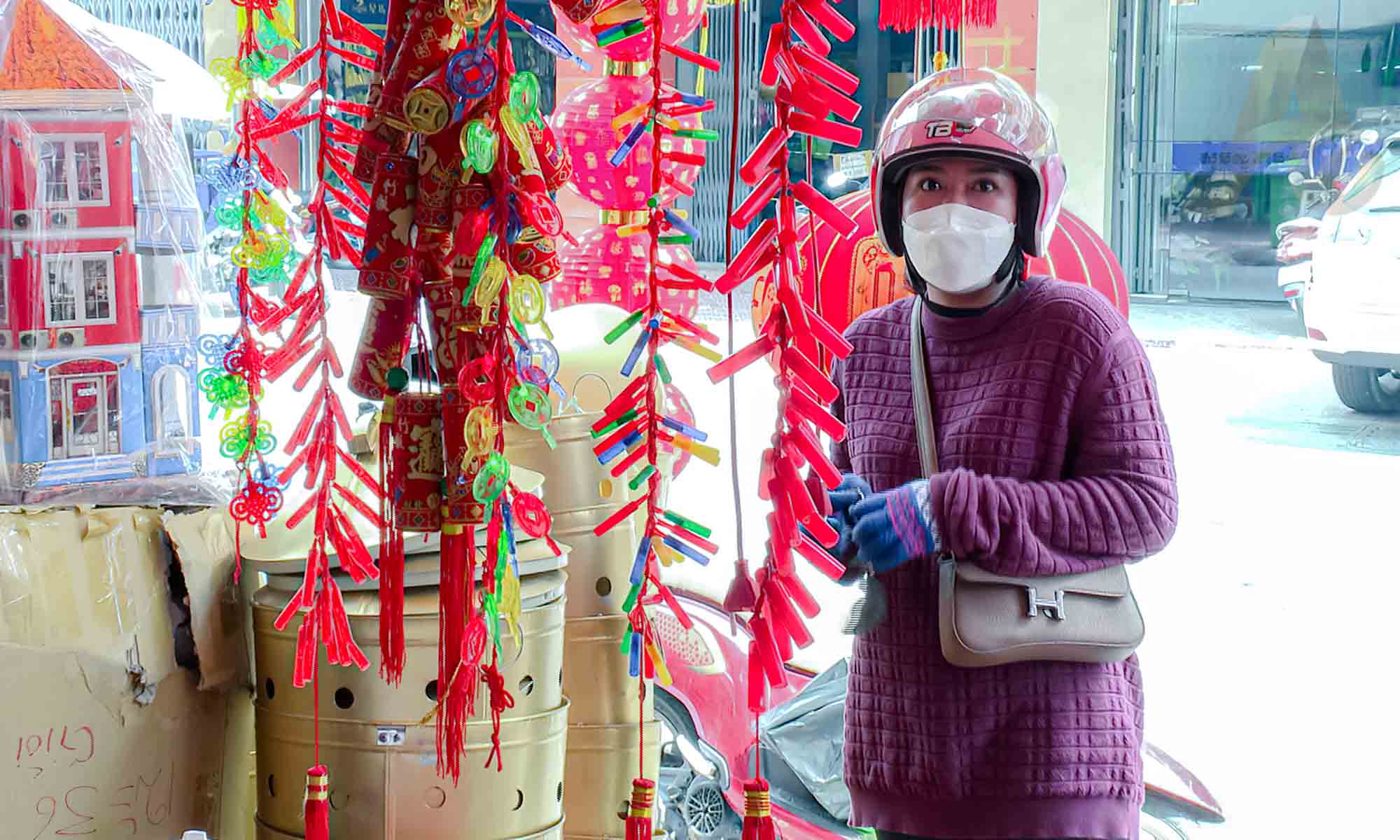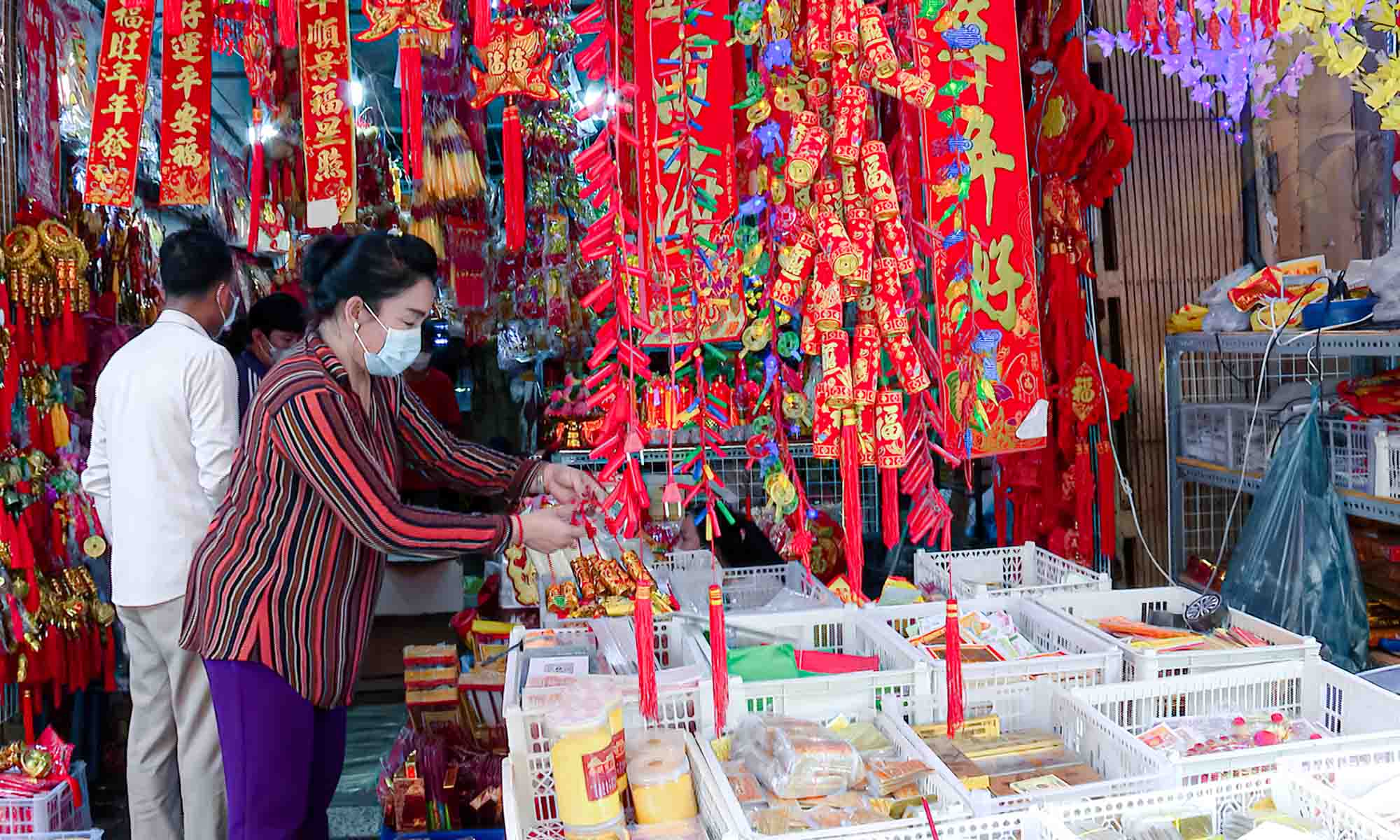PHNOM PENH: Although in Cambodia, there is a traditional Khmer New Year, another traditional New Year celebration that is popular with most people in the country is the Lunar New Year. The festival is celebrated by many Cambodians of Chinese descent at home as well as in Chinese temples, although it is not a national holiday.
As the festival draws close, many have put up bright red lanterns on their doors, windows and other places in their homes, and yellow fortune flowers like gold adorn the houses as well. They believe that offering New Year angels on the occasion of the Lunar New Year will bring them happiness and wealth and will shield them from any misfortunes.
The 2022 Lunar New Year starts on 31 January and will last until 2 February.
In Phnom Penh, you can find colorful flowers, especially yellow fortune flowers, as well as home decorations, such as yellow and red paper lanterns, in the markets as well as on the streets. Food being widely sold in vendor stalls include roast pig, roast chicken, and Chinese spices. Vendors at each stall are busy selling these items to customers with almost no time to rest.
According to Chinese mythology, one day an animal named Nian (meaning year in Chinese) came to slaughter livestock, villagers and especially children. To protect themselves, the villagers put food in front of their houses every year. It is believed that after Nian eats the offered food, it will no longer harm the people. The villagers once saw Nian scared of children dressed in red, which made them realize that Nian was afraid of the color red. Therefore, when the new year comes, the villagers wear red and put up red lanterns and red paper decorations on their doors and windows. The villagers also used fireworks to drive Nian away. After that, Nian never came to the village again.
A trader in Orussey Market is busy selling items for the Lunar New Year. Past one o'clock in the afternoon and there are still a lot of guests coming to buy various items at her stall. The stall owner said that customers started coming to buy Chinese New Year gifts at the beginning of the month and had more customers than last year.
She said that people come to buy lanterns and red paper to display at home because they understand that red is a color that chases evil and makes evil spirits not dare to harass their families. In addition, there is gold and silver paper to burn as offerings to ancestors who have passed away, as well as fireworks.
The seller says she understands that such rituals really help families prosper and have good fortune throughout the year.
"We hang lanterns on the walls of the house to raise our Feng shui zodiac sign, and fireworks will be lit regularly. In China, they like to light fireworks, they hang decorations in front of their houses, they can burn, they can turn on the sound. [...] We offer food, water, we offer to our ancestors, we decorate the house to get good fortune throughout the year, to wish us all to be healthy in our house and to allow money to flow in at once,” said the seller.
One of the customers who came to buy various materials and decorations, Kaing Kim Leng, thinks that making offerings as well as decorating one’s house according to the Chinese tradition brings good fortune to that person, as he observes this ceremony being held every year.
He said, "We do it based on the beliefs of most Chinese people, with red and gold colors, bringing good fortune to their property every year. In my personal opinion, I think it is normal if they celebrate this every year, it means it really bring good fortune and good luck to their house, that’s why they do it every year.”
The materials he buys includes red lanterns, paper, small gold bars, and fortune flowers.
Heng Ly, a roasted pig seller at Orussey Market, said that this year there were more buyers than last year after the government reopened the country. Customers order about ten to twenty pigs a day, and the price of roasted pigs and chickens are higher than usual, but at an acceptable level.
"This year the sales are a bit better than last year, we’re not nervous about Covid-19 because we have maintained strict protections. We have sold out since the beginning of January quite frequently, but we do not know if sales can be more than last year because there are not many orders. Generally, pigs weighing 10 kilos or more, we usually weigh the price on a normal day from US $17.15 to $18.4, but on the day of the offering, the price goes up accordingly because the goods we bring in are also more expensive. Prices are expensive, but acceptable,” said Heng Ly.
A florist in Boeung Prolit, Sim Sareth said that most customers come to buy only fortune flowers, marigold flowers and oranges to display, because they understand that all these plants in the house will bring prosperity, good fortune and good luck to them.
"This is the Chinese New Year, so since it is the Chinese tradition, we sell out a lot these days, but we usually are not busy until the Chinese New Year. It becomes very busy during the Chinese New Year. Most people come to buy lucky plants, orange trees [...] yellow fortune flowers, they represent luck in business and wealth, and the orange tree brings good fortune to their homes. All of these plants are expensive, but if they spend money to buy it, it will bring them good fortune. This year they would earn good fortune, and next year they will also earn it,” said Sim Sareth.
At the shrines in Phnom Penh, especially at Wat Phnom, people who believe in the Chinese tradition will gather to pray for peace and safeguard against curses and bad luck according to Chinese rituals. People climb up and down the stone stairs at Wat Phnom to make their prayers. Smoke of incense filled the shrine.
Prak Samnang, an elder who lives in Neak Ta Preah Chao temple, said that this year more people came to visit the temple than last year since the Covid-19 situation has improved. Most people coming to make their prayers are of Chinese descent, who believe in the power of their ancestors and ask for peace in the family, take various vows, and hope to cure bad luck.
He said, "These days, at the end of the year, our people, who he turned away from at the beginning of the year, came to say goodbye to his grandfather, who came to thank him for helping him to have a healthy business that year. In particular, some of the people who came to cure their bad luck, because this year some Chinese zodiac signs such as the Tiger, Monkey, Snake and Pig are said to have bad luck so people who are born with these zodiac signs come to pray and cure themselves of bad luck and ask for prosperity.”
The Lunar New Year is three days long, and these days are considered the most special days where people should not do anything dirty or bad that could impact the happiness of the New Year. People have to be in a good mood and bring glory to themselves and their families. Some even forbid themselves to cry, dress up but do not wash their hair, do not enter other people's rooms and do not break dishes or glasses during the three days of the New Year.
One of the citizens who came to pray at Neak Ta Preah Chao, Taing Vong Ratanak, said that he came to the temple to cure the bad luck for his son. He expressed his strong belief in the preparation of ceremonies during the Lunar New Year. He said good execution of the traditions and ceremonies will allow families to avoid danger and receive good luck indeed.
He said, "Well, this is a Chinese tradition, it depends on the belief, some people believe it, some not, it depends on the individual, but for those who follow Buddhism in China, I believe we are here to cure our bad luck and bring good fortune.”
